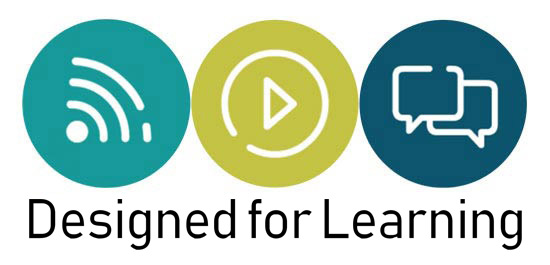11 Jul The Richness of the Classroom
Online learning has always been positioned as the poor relation to classroom or face-to-face learning. The challenge has always been:
‘How can you possibly re-create the richness of the classroom online?’.
My standard response was that not all classrooms have richness – it depends upon the ability of the trainer. Some trainers are truly exceptional, relying on well designed exercises and activities to really help people learn. I characterise these trainers as ‘The Star on the Stage‘. However some trainers are far less capable, relying on stacks of PowerPoint slides packed with hundreds of bullet points. Others really know their stuff but are unable to bring the deep knowledge they have to life for learners. These trainers are often characterised as ‘The Sage on the Stage‘ (you will recognise them from your college or university days).
Mr Clugston and Dr Jennens
At school these two teachers made a big impression on me. Mr Clugston introduced me to the joy of mathematics. His passion for the subject combined with his insight into what makes the subject difficult for learners meant that he was able to design maths lessons that kept us awake and fully engaged. He also loved technology and brought along one of the very first programmable calculators (a Sinclair with an LED display) to a lesson one day to show us how maths was changing the world. Dr Jennens however made physics boring to the extreme. His detachment from learners and from the problems learner’s faced in understanding abstract concepts meant that many of us lost interest completely and had to pass our exams using our text books alone.
In the early days I accepted that an online course was probably less rich than a good (Star on the Stage) face-to-face workshop but its advantage was that it was more efficient and flexible and accessible by anyone 24/7. Not many classrooms can do that!
Recently though I have come to realise that online learning can be just as rich as classroom learning. It’s just that the richness is evident in different ways. Here are some of them:
- In a well designed e-learning module you can explore things and repeat things to your heart’s content and you can fail without embarrassment. It’s just you and your learning.
- In a virtual classroom you can make contributions, take part in polls and follow live weblinks all from the comfort of your laptop or tablet computer.
- In a webinar you can surf the backchannel chatting with other learners and sharing stuff that the trainer has missed.
- In a virtual learning environment you can take part in discussions with other learners and get help from your e-tutor when you need it.
- In a learning management system you can take online assessments or diagnostics to test your own understanding.
- In a social learning platform you can contribute your own content and resources and these can be rated and commented on by other learners. You can be the trainer as well as the learner.
- You can access learning at the point of need via a mobile device such as a smarphone or tablet.
- You can extend your learning beyond the single classroom event so that not only do you learn stuff but you also have the ability to reflect on and show evidence of how that learning is applied back in the workplace.
- You can connect your learning with colleagues and others via social media tools such as Twitter, LinkedIn, Facebook and YouTube.
I still come across trainers and L&D people who will defend the classroom until the lights go out. Partly this is because they see online learning as a threat to their business model but it’s also because they genuinely haven’t opened their minds to the possibilities of online learning.
This isn’t meant as a polemic against the classroom just a recognition that online learning has some great things going for it and any trainer not using it to improve the learning experience for their learners is in danger of becoming extinct.







cialis 5 mg best price usa
Posted at 09:42h, 26 FebruaryGood answers in return of this issue with genuine arguments and explaining everything about that.
binance
Posted at 15:44h, 06 MarchThank you for your sharing. I am worried that I lack creative ideas. It is your article that makes me full of hope. Thank you. But, I have a question, can you help me?
lisinopril hct
Posted at 07:56h, 16 Aprillisinopril over the counter
foreign pharmacy online
Posted at 15:19h, 17 Aprilonline pharmacy birth control pills